For Daily Use
-
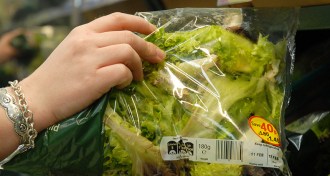 Microbes
MicrobesCut leaves in bagged salads help Salmonella grow
Juice from torn-up leafy greens helps Salmonella spread in bagged salads.
-
 Tech
TechWi-Fi can help house distinguish between members
Using Wi-Fi, computers could one day identify individual family members in a smart home.
-
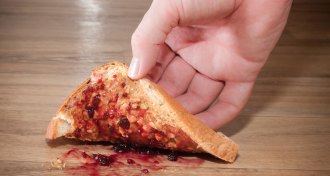 Health & Medicine
Health & MedicineIt’s time to retire the five-second rule
Wet food can slurp bacteria off the floor in less than a second.
-
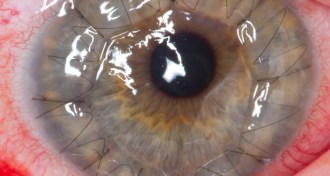 Health & Medicine
Health & MedicineCornea donation may have sex bias
Women receiving a corneal transplant do better when their donors are female, new research finds.
By Amber Dance -
 Microbes
MicrobesThaw tests turn up dicey bagged ice
Tests of bagged ice found that 19 percent exceeded recommended thresholds for bacterial contamination.
By Laura Beil -
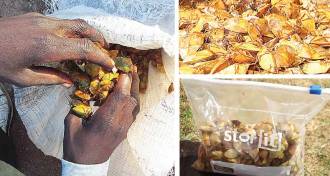 Animals
AnimalsEat your stinkbugs
Prepared as a snack by some groups in southern Africa, the stinkbug Encosternum delegorguei is a good source of protein and antioxidants.
-
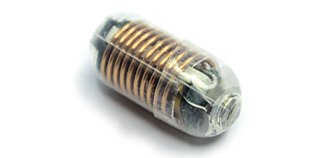 Tech
TechPill measures gut gas
A gas-sensing ingestible capsule tested in pigs could someday help doctors assess people’s gastrointestinal health.
-
 Physics
PhysicsCommon campfire build confirmed as best
A standard method for building fires, making the height about equal to the width, is the most efficient structure for stoking the hottest flames, calculations show.
By Beth Mole -
 Science & Society
Science & SocietyHere’s what game theory says about how to win in semifinals
Game theory informs competitors facing off in a semifinal whether to go all out or save energy for the final.
By Andrew Grant -
 Psychology
PsychologyBig ears don’t necessarily come with baggage
In a small study, adults judged children and teens with big ears as intelligent and likable.
-
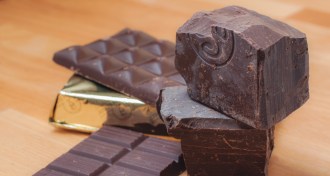 Neuroscience
NeuroscienceCocoa antioxidant sweetens cognition in elderly
Very high doses of antioxidants found in cocoa may prevent some types of cognitive decline in older adults. But that’s not an excuse to eat more chocolate.